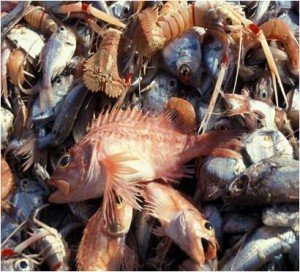 ONLINE BRIEFING: Monday 8 March 2010, 11 am NZT
ONLINE BRIEFING: Monday 8 March 2010, 11 am NZT
Seaweek kicks off this week with the theme ‘Fish for the future’. But faced with threats of overfishing and global fish stock collapses, will our marine resources survive for future generations?
New Zealand manages fishing rights to the world’s fourth largest Exclusive Economic Zone, and fishing is our fourth largest export earner. Every year, the country faces difficult and complex decisions about how many fish should be harvested, and science plays a key role in those decisions.
Are our fisheries being exploited for short-term gain? Or are current catches sustainable? Perhaps most importantly, how can we measure the difference?
In this Science Media Centre briefing, a panel of fisheries and marine scientists will address the following issues:
- How do we measure how many fish are in our seas?
- What science goes into setting targets for harvesting fisheries?
- How we determine what level of catch is “safe” or “sustainable”?
- What do we understand well, and where are the key gaps in our knowledge?
- What major issues do fisheries scientists see on the horizon?
LISTEN ONLINE
Click the players below to hear an audio recording of the briefing. Registered journalists can download presenters’ slides from the SMC Resource Library.
Part one: [audio:https://www.sciencemediacentre.co.nz/wp-content/upload/2010/03/Fisheries-briefing-pt-1.mp3]
Part two: [audio:https://www.sciencemediacentre.co.nz/wp-content/upload/2010/03/Fisheries-briefing-pt-2.mp3]
SPEAKERS
Dr John McKoy – Chief scientist, Fisheries, NIWA
John McKoy is a marine zoologist with a PhD from Victoria University of Wellington. He has contributed in a range of roles to fisheries research in New Zealand since 1973, in MAF, MAF Fisheries, and since 1995, NIWA. As a scientist he has worked on giant clam fisheries in Tonga, rock lobster, scallop, snapper and albacore fisheries and a range of other inshore species. He was involved in the earliest days of developing mussel farming in the Marlborough Sounds. He has worked in research management in NZ for 20 years and has, for light relief, supervised the science side of fisheries surveys and consultancies in Oman, Iran, United Arab Emirates and Yemen.
Dr Rich Ford – Principal Scientist, Ministry of Fisheries
Rich works as a scientist in the Ministry of fisheries providing advice on the environmental impacts of fishing. His specific expertise is in community ecology of the seafloor and he has experience working on the impacts of land-use on coastal communities whilst he was an academic at the University of Auckland.
Prof John Montgomery – Director Leigh Marine Laboratory, Chair of Marine Science, University of Auckland
Professor John Montgomery has published extensively on sensory behaviour and physiology of fish, including hearing, and hydrodynamic senses. Recent work on tagging pelagic and coastal fishes has implications for population connectivity, conservation and fisheries. His work has been recognised by election to the Royal Society of New Zealand, an International Brain Research Organisation Fellowship, and a Fulbright Scholarship. He also plays an active role in promoting Marine Science and communicating science to the public.
Further Information
For more information, please contact the New Zealand Science Media Centre on tel: 04 499 5476 or email: smc@sciencemediacentre.co.nz